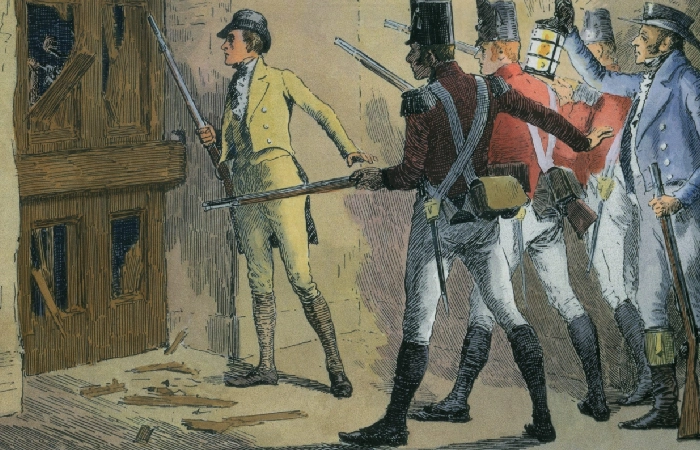Table of Contents
The True Story of the Luddites:
Luddites The working class was suffering from a severe economic crisis. The mighty north of England textile industry owners sought to cut costs by lowering their workers’ wages and introducing new machinery, giving up part of the workforce to obtain a lower price. But poor quality product.
After trade unions had been banned and persecuted since 1800, the Luddite movement arose on March 11, 1811, in Arnold near Nottingham. That same night, after the army suppressed a protest demanding more work and better wages, a mob destroyed 63 automatic looms replacing the weavers’ labor.
The working class was suffering a severe economic crisis. The owners of the robust textile industry in the north of England sought to cut costs by lowering workers’ wages and introducing new machinery.
The Movement Spread Quickly
In the next two weeks, more than a hundred looms were destroyed in nightly attacks on technologies that threatened jobs in the textile centers of central and northern England at the heart of the Industrial Revolution. More machines kill in November of the same year, and several factories burned down.
But the modus operandi had change. Now the attacks by Ned Luddites price by signed threatening letters. Letters like this:
We created out a few days ago that you bought a pair of scissors, and if you don’t make them disappear in less than fifteen days, we will destroy them, and we’ll do the same to you, bloody hellhound. And by God Almighty, we will swallow all the factories with scissors. We’re going to rip your whole damn heart out of your chest, and we’re going to make fun of others, we’re going to hit them, or we’re going to do the same to you.
Luddites Never Existed

and inspired by a supposed apprentice who, 22 years earlier, destroyed two looms after being punished by his boss. Ned Luddites “embodying the right of the poor to make a living and to defend the customs of their trade against indecent capitalist predators demonstrates the strong independence of a community willing to resist the idea that market forces, not moral values, must rule the destiny of work,” according to historian Adrian Randall.
More than 100 looms destroy in overnight attacks on technology that threatened jobs in textile centers in central and northern England.
The British government’s response was adamant. Twelve thousand soldiers deploy to fight the Luddites, outnumbering the troops sent to the Iberian Peninsula to fight Napoleon. Parliament pass a law in 1812 making the destruction of machinery punishable by death.
Although the Luddite movement almost crushes by 1813, the last riots attribute to the Luddites occurred in 1817. More than a thousand mills did not survive the wrath of the mythical Ned Luddite. At least 30 Luddites we hanged, and more than 60 exited to Australia. Laissez-faire had won the battle against Luddites.
It’s not Technology. It’s Capitalism.
Steven E. Jones, Professor of Digital Humanities at the University of South Florida and scholar of the Luddite movement
Various “a posteriori” motivations ascribe to the Luddites. For Steven E. Jones, a professor at the University of South Florida and author of Against Technology. The original Luddites were a “labor movement” that was not “per se” anti-technology. Technology adopters who just want a fair wage for their work and didn’t want to be put out of business by the industry’s owners” explains Jones.
“They weren’t philosophically opposed to technology with a capital A.
They view the machines as part of their environment and want to maintain control over them, just as their ‘guild’ had wanted for generations.” Machine wreckers. According to historian Maxine Berg, “criticized the rapid introduction of new techniques into situations that immediately led to technological unemployment”.
For his part, historian David F. Noble, in his book A Different Vision of Progress: In Defense of Luddite, defends that the analysis conducted on Luddites “represent a ‘post hoc’ attempt to deny the movement legitimacy and rationality”. “to guarantee the triumph of capitalism”.
David F Noble
David F. Noble, historian and author of A Different View of Progress: In Defense of Luddite
Given the myth that the reflect in technological advances

